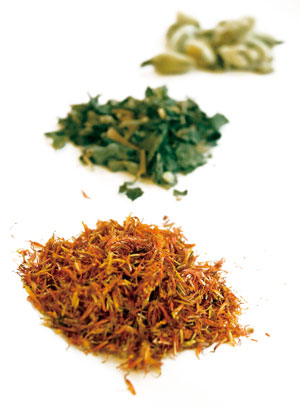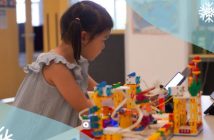
Demystifying Traditional Chinese Medicine
Like most natural therapies, Traditional Chinese Medicine, or TCM, is eyed with some caution by many. For the uninitiated, TCM is a holistic medical practice incorporating multiple treatments with a simple philosophy: Your body and mind are directly affected by your environment and vice versa.
Developed in China by scholars more than 2,500 years ago, TCM has been left behind in recent decades. The radical modernization of China has pushed TCM and its traditional practitioners into relative obscurity. Though many TCM doctors are currently practicing in China and around the world, very few practice this complicated art as it was intended. A report published by the World Health Organization (WHO) found serious flaws in the teaching of TCM and concluded that current graduates were essentially unfit to practice. In addition, many Western studies have analyzed the effectiveness of TCM, particularly in relation to the placebo effect, and the overall results have not been good.
JulieAnn Davis, a Beijing-based TCM doctor, has been studying TCM in its traditional form for more than ten years and believes that TCM has gained a bad reputation because of lax standards in China and abroad.

“There’s no Harvard of Chinese medicine,” she says, and points out that it’s all too easy for under-trained people to practice on unsuspecting patients. Davis believes that finding a good TCM practitioner is necessary to avoid any mishaps; unfortunately, these individuals are increasingly few and far between.
A major hurdle to understanding TCM is the individualized nature of the treatments. For example, two patients will not receive the same prescription for a cough, unlike in Western medicine. The reason for one person’s cough can be totally different from another’s, therefore their treatments are unique.
One person may have a dry cough because she has yet to adjust to the Beijing winter, for her, the doctor may prescribe a combination of “wet” herbs to increase inner moisture. Someone else may have eaten too much dairy and developed a congested cough; this person may be prescribed decongestive herbs and told to lay off the cheese. In general, symptoms are viewed as signs of a larger problem rather than the problem itself.
At a glance, TCM is just as much about philosophy as it is about
potions and lotions. Though modern TCM has evolved far from its roots, practitioners still refer to the 2,400-year-old text upon which its theories are based, The Yellow Emperor’s Classic of Internal Medicine. The first building block of TCM is qi, which loosely means energy. Illnesses are directly related to an excess, deficiency or blockage of qi inside the body. TCM also incorporates the five elements – metal, wood, water, fire and earth – into the diagnostic process. Each element is believed to interact and correspond with specific organs in the body. Finally, there is the notion of yin and yang, which must work in harmony in order to avoid illness.
TCM is made up of five major treatments: qigong (a form of meditative movement and exercise), herbal treatments, acupuncture, diet, and acupressure (a form of massage). The aim of any treatment is to ensure qi flows smoothly within the body and that all organs are working in harmony.
Name: Amy Shen

Children: Two sons, one daughter
Status: True Believer
History: Used TCM for more than five years to treat herself and her family
Problem: Sinus infection. Shen suffered from blocked sinuses, headaches and difficulty breathing
Treatment: Acupressure in the form of a therapeutic foot massage, also referred to as reflexology
Results: Shen’s sinus infection was so severe it led her to tears. After using western antibiotics to no avail, Shen decided to try acupressure. A therapist came to her home and pressed on different points on the soles of her feet. Though the experience was painful, five minutes after her first session, Shen’s sinuses began to drain and she felt instant relief. Shen had daily sessions for a week, each time draining her sinuses. After her fifth session she was back to normal.
Advice: Shen recommends acupressure to anyone with sinus problems, but be sure to find a good practitioner you trust.
Name: Christopher Lay

Children: One daughter
Status: First-time User
History: Previously used some natural medicines
Problem: Itchy scalp
Treatment: Tea made of 23 varieties of herbs
Results: After unsuccessful attempts with Western medicine, Lay turned to TCM. The tea he was prescribed (twice daily for six days) was “quite a challenge to get it down,” says Lay. He could barely stomach the foul taste and smell, and his wife was not too pleased with the stench it left in the house. At the end of the six days, Lay didn’t see much of an improvement and found that the trouble of using TCM was not worth the lack of pay-off.
Advice: Lay recommends you check with friends who’ve tried TCM before venturing into the unknown.
Name: Kathryn Westberg
Children: Twins
Status: Non-believer
History: Used TCM for 6 months
Problem: Migraines
Treatment: Weekly acupuncture and herbal tea twice a day
Results: Westberg had used Western medicine for her ongoing migraines but wanted to see if TCM offered a more effective treatment. Based on her doctor’s advice, she used TCM for six months in conjunction with Western medicine. Despite the long time commitment, Westberg found TCM did not improve her migraines and she returned to using Western medicine only.
Advice: Westberg recommends Western medicine and a healthy lifestyle to fellow migraine sufferers.



